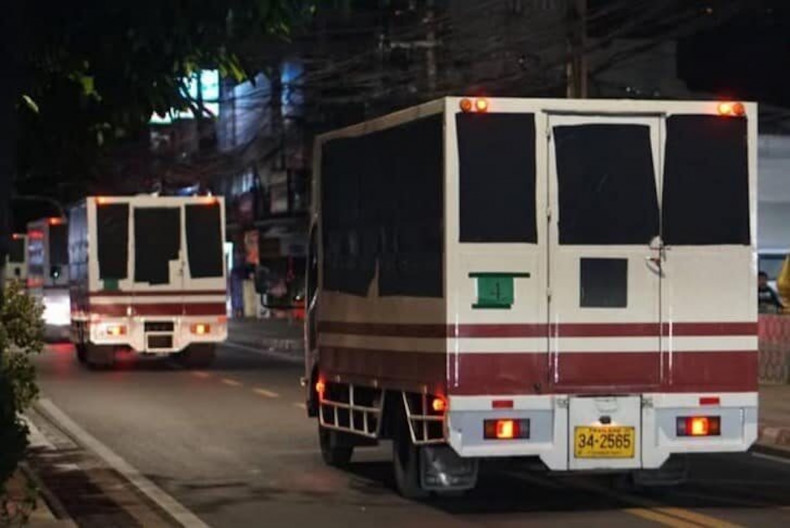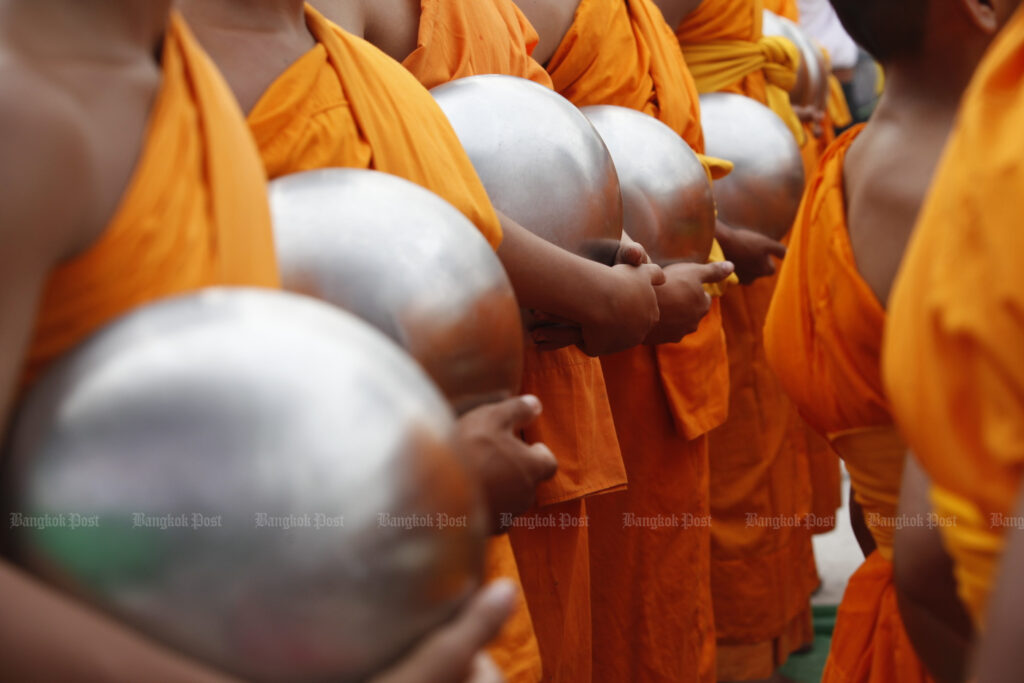A Thai government move to deport 40 Uyghur detainees after almost 11 years in the country sparked both official justification and sharp international condemnation, highlighting tensions between domestic security policies and international human rights obligations. Bangkok said the removals were conducted in line with international standards and agreements with China, but rights groups and UN agencies warned that the action violated non-refoulement and exposed detainees to significant risks in China. The episode also drew attention to Thailand’s ongoing handling of Uyghur asylum seekers who have lived for years in a detention facility outside Bangkok, underscoring broader concerns about refugee protection, due process, and political accountability in Southeast Asia.
Timeline of the Deportation and the Immediate Aftermath
The operation began in the deep hours of a Thursday, marked by a mysterious early-morning motorcade and a sequence of flights and transfers that drew intense scrutiny. A photo circulated on social media showing detention vans with their windows covered, leaving the immigration detention centre on Soi Suan Phlu in Bangkok around 2 a.m. local time. The vans proceeded onto the expressway with a police escort that effectively prevented onlookers or reporters from following or tracking their ultimate destination.
Key actions unfolded at Don Mueang International Airport, where China Southern Airlines flight CZ5245, which had originated from Kashgar in the Xinjiang Uyghur Autonomous Region, landed late the previous night. Early on the morning of Thursday, flight CZ5246 departed Kashgar with a destination listed as “unspecified” on tracking platforms, and within roughly six hours the aircraft was reported to have landed again in Kashgar. The Thai government did not publicly detail the flight path or final landing point in China in that moment, but state media later described the repatriation process as completed.
Upon arrival in China, official Chinese channels indicated that 40 Chinese citizens who had entered Thailand illegally after being “bewitched by criminal organisations” had been repatriated. A Chinese Foreign Ministry spokesperson later framed the repatriation as a concrete measure of cooperation between China and Thailand in combating cross-border crimes. The Thai authorities framed the operation as an enforcement of immigration and security priorities, arguing that the deportations aligned with international standards and procedures.
In Bangkok, discussions continued in political circles and at parliamentary sessions. The Thai prime minister at the time, during a period of questioning, emphasized that any country dealing with such issues had to base actions on applicable laws, international procedures, and human rights. She had recently spent five days on an official visit to China, though it remained unclear whether Uyghur-related issues were discussed in the talks with Beijing. The Chinese embassy subsequently released images it described as showing Uyghur men reuniting with their families in Xinjiang on the day of arrival, reinforcing Beijing’s narrative of successful reintegration.
National authorities initially characterized the operation as a routine transfer of individuals considered illegal migrants, asserting that the transport of detainees in police vehicles with darkened windows and official logos was consistent with accepted security and human rights practices. An official from the Thai side stressed that the deportations reflected a normal procedure for handling illegal migrants and argued that extending detention for the Uyghurs would be unjust and contrary to human rights.
The episode also prompted reaction from the international community and human rights organizations. The United Nations High Commissioner for Refugees (UNHCR) expressed deep regret, describing the deportations as a violation of the non-refoulement principle and Thailand’s obligations under international law. Human Rights Watch (HRW) condemned the government for deporting men after publicly promising not to do so, warning of the risk that the Uyghurs could face torture, enforced disappearance, or long-term imprisonment in China. Rights advocates argued that the Thai government’s actions could undermine Thailand’s credibility on human rights within Asia and beyond.
Other voices spoke of the broader consequences of the decision. Some political critics warned that the move would affect Thailand’s standing in international forums and its relationship with major partners in the region and beyond. Critics cited the United States and other allies as potential sources of friction, noting prior concerns about the situation of Uyghurs and the delicate balance between security concerns and humanitarian protections.
As the day continued, international and domestic observers pressed for greater transparency about the legal basis for the deportations, the treatment of the detainees during and after transfer, and the implications for Thailand’s obligations under refugee protection frameworks. The Thai government maintained its position that the action was lawful and necessary to uphold national security and to cooperate with China on cross-border crime, while acknowledging the need for due process and the importance of following international standards.
Official Narratives, Statements, and International Reactions
Thailand’s defence leadership framed the deportations as a measured and standards-based operation. Defence Minister Phumtham Wechayachai publicly asserted that the removals were performed in accordance with international norms, marking what he described as the first official confirmation from the government after days of intense speculation. He emphasized that the action was taken in line with Thailand’s legal framework and international procedures, and that it represented a controlled and orderly transfer rather than a reckless or punitive expulsion.
In Parliament, responses varied. Prime Minister Paetongtarn Shinawatra stated she had not yet reviewed all details of the matter and suggested that any country dealing with such issues must base its actions on applicable laws, international procedures, and human rights standards. Her remarks reflected a cautious approach, underscoring the need for a lawful and rights-respecting process while avoiding premature or politically charged conclusions.
On the Chinese side, the Xinhua News Agency, the state-run press, reported that the 40 Chinese citizens who had entered Thailand illegally and were stranded in the Southeast Asian country had been repatriated. A Chinese Foreign Ministry spokesperson, Lin Jian, framed the repatriation as a concrete measure of cooperation between China and Thailand in combating cross-border crimes. Lin also suggested that “certain political forces” were spreading lies about Xinjiang in an attempt to disrupt public order, positioning the repatriation as a pragmatic outcome of bilateral collaboration rather than a punitive measure.
From the United Nations and rights groups, the response was markedly more critical. The UNHCR publicly stated that it deeply regrets the deportations, emphasizing concerns about non-refoulement and international law. Rights groups criticized Thailand for acting despite prior assurances. Elaine Pearson, Asia director of HRW, argued that the transfer of Uyghur detainees to China violated Thailand’s obligations under domestic and international law and warned of the potential for torture, enforced disappearance, and long-term imprisonment in China.
In Bangkok, stakeholders in civil society and politics called for accountability and transparency. Analysts noted that Thailand’s decision would reverberate beyond its borders, potentially affecting its relationships with allies and its standing in international bodies that monitor human rights and refugee protections. The combination of official statements, bilateral framing, and international critiques created a complex narrative in which security concerns, legal obligations, and humanitarian responsibilities collided.
Legal Frameworks, Non-Refoulement, and Human Rights Implications
At the core of the debate lies the principle of non-refoulement, a cornerstone of international refugee protection that prohibits returning refugees or asylum seekers to a country where they face a real risk of persecution, torture, or other serious harm. Rights groups argued that the Thai government’s deportations violated this principle by transferring Uyghur detainees to China, where the risk of mistreatment and political persecution has been well documented by international observers. The UNHCR highlighted that the action ran counter to Thailand’s obligations under international law, reinforcing concerns that the state could be complicit in refoulement.
From a domestic legal perspective, Thai authorities contended that the individuals involved were deemed illegal migrants and that repatriation is a permissible tool within immigration enforcement. They asserted that the operation was designed to comply with Thai law, while also maintaining that the action was conducted with appropriate safeguards and respect for human rights. The tension between national security considerations and international refugee protections is a central theme of this discourse, with supporters of the deportation arguing that enforcement of immigration rules serves a legitimate public interest, while critics warn of the long-term costs to Thailand’s moral authority and legal obligations.
The National Security Council (NSC) has historically overseen detainees categorized under national security concerns, a classification that can limit access to certain mechanisms designed to protect refugees. In the case of the Uyghur detainees at the Suan Phlu facility, this framework has complicated access to the country’s National Screening Mechanism, which is designed to provide a pathway for refugees to live in the country and access public services. Critics contend that such compartmentalization can trap vulnerable individuals in protracted detention, complicating due process rights and the possibility of fair review of their status.
International law scholars point out that even where a state chooses to remove people domestically classified as “illegal migrants,” the process must respect protections against refoulement and ensure that individuals are not sent to a country where they would face persecution or serious harm. They argue that the precautionary principle, due process, and review mechanisms must be robust enough to prevent rights abuses, particularly for groups like Uyghurs who have faced international scrutiny for human rights concerns.
The human rights community also highlights the risk of torture, enforced disappearance, or long-term imprisonment in China. Elaine Pearson of HRW underscored that even if the Thai government believed it was acting within a legal framework, the actual consequences endure in China for those deported. The UNHCR’s statement echoed this concern, emphasizing the potential breach of international protection standards and the moral duty to uphold the principle of non-refoulement. The legal debate thus centers on whether the Thai government’s actions were justified by immigration enforcement claims or whether they crossed a threshold that should trigger safeguards against sending individuals into harm’s way.
The Detainees, Their History in Thailand, and Conditions at Suan Phlu
The Uyghur detainees involved in this episode have a long and complicated history in Thailand. The detention centre at Soi Suan Phlu in Bangkok has housed Uyghur detainees for nearly 11 years, a fact that lies at the heart of ongoing debates about refugee protections, due process, and the humanitarian treatment of individuals caught in complex cross-border legal situations. Detainees and advocates have described the living conditions in the facility as challenging, with reports of heat, overcrowding, and limited access to family contact, legal representation, and external oversight.
The detainees’ status has long been framed in Thai policy as a national security matter, which places them under the purview of the NSC rather than standard immigration authorities. This classification has implications for how detainees access services and mechanisms that might be available to refugees seeking protection or asylum in Thailand. Critics have argued that such a framework can create barriers to due process and can prolong unresolved detention, effectively depriving detainees of timely legal determinations about their status.
Historically, the Uyghur community in this corridor of Southeast Asia has a fraught past. About a decade ago, Thailand became a waypoint for Uyghurs fleeing repression in China and seeking to reach Turkey, which has been seen as a potential asylum destination. A large group, initially around 350 detainees, were arrested by immigration authorities near the border with Malaysia in March 2014. By July 2015, about 170 women and children from the group were released to Turkey, while around 109 were deported to China a short time later. The fate of those deported to China remains unclear, while the rest were kept in detention in Thailand. Reports over the years describe deaths, escapes, and ongoing legal and humanitarian concerns within the detention system.
Within the Suan Phlu facility, five of the asylum seekers are said to be serving prison sentences related to a 2020 escape attempt, while the remaining 43 are being held without charge. This phrasing underscores the layered and sometimes opaque nature of the detainees’ status, where national security classifications, criminal charges, and refugee protections intersect in complex and frequently contested ways. The detainees’ inability to communicate with families, lawyers, or other detainees has been highlighted as a major barrier to transparency and accountability, raising questions about access to legal counsel, appeals processes, and independent oversight.
The community of Uyghur detainees has also endured a harsh environment inside the detention complex, with concerns about living conditions, safeguarding basic rights, and ensuring humane treatment. Rights groups have argued that prolonged detention without transparent review, particularly under a national security umbrella, risks violations of international norms and could lead to human rights abuses if not adequately monitored and constrained by law. The Thai government’s ongoing responsibility to protect these individuals, ensure due process, and provide avenues for safe, lawful resolution remains central to the ethical and legal debate surrounding this case.
International Dimensions, Security Policy, and Regional Impact
The Bangkok decision to repatriate Uyghur detainees sits at a crossroads of regional security policy, international law, and great-power dynamics. On China’s side, the government framed the operation as a cooperative effort in countering cross-border crime, arguing that the deportations were a justified outcome of China–Thailand collaboration. The Chinese embassy and state media framed the move as part of a broader strategy to address illegal movements and criminal networks that allegedly entangle vulnerable populations in transnational crime.
For Thailand, the episode comes amid a broader push to reaffirm sovereignty, enforce immigration controls, and respond to perceived security threats in a regional context where irregular migration and asylum-seeker movements intersect with economic and political interests. The Thai government’s stance was that the deportations were conducted in accordance with international standards, a claim also echoed by some Thai officials who argued that removal was necessary given Thailand’s legal framework and policy priorities.
International reactions underscored the tensions between state sovereignty and humanitarian obligations. UN agencies stressed the importance of upholding international protections, with the UNHCR noting regret and concern about non-refoulement. Rights organizations pressed for accountability, warning that the removals could undermine Thailand’s commitments to human rights and potentially damage its credibility within international bodies that monitor refugee protections.
The decision also carried implications for bilateral relations, including Thailand’s relations with the United States and Turkey. Critics drew connections to broader geopolitical concerns, including how such cases might influence international trust and cooperation on human rights, asylum policies, and regional security. The U.S. political landscape has shown sensitivity to Uyghur rights and to actions perceived as undermining refugee protections, with some lawmakers highlighting the risk of strained ties in light of ongoing concerns about human rights in Xinjiang and how allied governments respond to these concerns.
Within this broader regional frame, Thailand’s action could influence how other countries weigh the balance between security enforcement and refugee protection, especially in contexts where international scrutiny is high and reputational risk is a material factor in foreign policy decision-making. The interplay of domestic security anxieties, legal constraints, and international obligations creates a volatile mix that often shapes a country’s standing in global forums and with key allies.
Public Debate, Civil Society Voices, and Ethical Reflections
Rights groups and civil society actors have been vocal in their critique of the deportations, arguing that the Thai government’s actions reflect a troubling view that human beings can be bargaining chips in political and economic calculations. Rushan Abbas, executive director of the Campaign for Uyghurs, described the deportations as an embodiment of a broader international pattern in which human lives are compromised for political or economic interests. Her perspective highlights a concern that the episode may set a dangerous precedent for other governments facing similar pressures to deport or repatriate detainees without sufficient safeguards.
Elaborating on the humanitarian risks, Elaine Pearson of Human Rights Watch asserted that the transfer of Uyghur detainees to China constitutes a blatant violation of Thailand’s obligations under domestic and international law. She warned that the men now face a high risk of torture, enforced disappearance, and long-term imprisonment in China, a projection that underscores the brutal consequences that can follow forced removals for individuals with precarious legal status and limited protection.
The broader public conversation also encompassed concerns about Thailand’s credibility and its role in upholding international human rights standards. Critics argued that the government’s stance on national security could be used to justify harsh measures against vulnerable populations, potentially eroding Thailand’s reputation as a nation that respects due process and humanitarian norms. Proponents of stricter enforcement contended that taking decisive action against illegal migration is essential for national security and social cohesion, particularly in contexts where illegal movements are perceived to strain resources or threaten public order.
In this climate, observers stressed the need for robust oversight, independent monitoring, and transparent adjudication processes to ensure that any future actions involving asylum seekers or detainees are conducted in accordance with international obligations. The discussion also touched on the role of media narratives, public opinion, and the responsibilities of governments to provide clear, evidence-based communication to their citizens and to the global community about the rationale and legal basis for deportations and related security measures.
Historical Context: The Uyghur Flight, Detention, and Thailand’s Role
The episode sits within a longer arc of Uyghur displacement and international flight patterns that have linked China’s western region to Southeast Asia and the broader Middle East. A decade ago, Thailand emerged as a corridor on which Uyghurs pursued routes toward Turkey, a country known historically for providing support to asylum seekers and solidarity with Uyghur communities. The region’s geography and the political climate of both China and Southeast Asian states created a multi-layered dynamic in which migration, asylum policy, and security concerns intersected in complex ways.
Within this historical frame, the deportations must be understood against a backdrop of previous actions in the region. A larger group of detainees, initially numbering around 350, was arrested near the Thai border with Malaysia in 2014. In 2015, a subset—about 170 women and children—was released to Turkey, while approximately 109 individuals were deported to China. The subsequent years have seen a mix of escapes, unresolved cases, and ongoing detention, including reports of deaths and harsh conditions within the Bangkok facility. The ongoing detention of many individuals and the political considerations surrounding their status have repeatedly challenged Thailand’s ability to balance security concerns with human rights responsibilities in a consistent and transparent manner.
The contemporary decision to deport 40 Uyghurs marks a notable moment in this longer arc. It raises questions about how Thailand will reconcile the country’s security priorities with its international obligations to protect individuals from harm and to provide due process in refugee determinations. The episode invites ongoing scrutiny from human rights groups, international bodies, and regional partners about the adequacy of Thailand’s asylum framework, the transparency of government actions, and the accountability mechanisms available to affected individuals and the broader Uyghur community living in or around Bangkok.
Conclusion
Thailand’s deportation of 40 Uyghur detainees after nearly 11 years in the country has underscored a difficult intersection of national security policy, refugee protection, and international law. Officials insisted that the operation adhered to international standards and bilateral cooperation with China, while rights groups and international observers argued that the action violated non-refoulement, endangered the safety and freedom of the detainees, and damaged Thailand’s standing in global human rights forums. The episode has amplified long-standing concerns about the treatment of Uyghur asylum seekers in Southeast Asia, the role of the NSC in guarding detainees labeled as security threats, and the extent to which due process and humanitarian safeguards are applied in detention and deportation decisions.
As the Chinese and Thai narratives converged on a story of cooperation against crime, international voices pressed for greater transparency, legal accountability, and adherence to refugee protections. The consequences of this decision will likely reverberate beyond Bangkok, informing debates about how countries in the region manage migration, security, and human rights in a rapidly evolving geopolitical environment. The human cost—families separated, detainees left in limbo, and a question-mark hanging over Thailand’s commitments to international standards—remains a central concern for observers, policymakers, and civil society actors who seek a balanced approach that preserves safety while upholding fundamental human rights.



